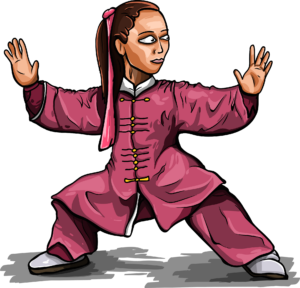BEIJING, CHINA – February 9, 2024 – Studies have shown that aerobic (cardio) exercise can reduce blood pressure in people with hypertension or prehypertension; however, a recent study indicates that another type of activity is also effective. A paper, published in JAMA Network Open on February 9th, found that tai chi reduced blood pressure to a greater extent than aerobic exercise in a group of persons with slightly higher than normal blood pressure. The tai chi group had a statistically significant average systolic blood pressure reduction of about 7 millimeters of mercury while the aerobic activity group had a statistically significant reduction of almost 5 millimeters of mercury. Both groups performed the activity for 12 months. The study also found that more than 20% of the tai chi group and more than 15% of the aerobic exercise group developed normal blood pressure 1 year after beginning the exercise regimen.
More than 300 persons with a slightly higher than normal blood pressure between the ages of 18 to 65 years participated in the study. They were randomly divided into 2 activity groups and performed the assigned activity for four 60-minute periods each week for 12 months. The aerobic exercise group had a moderate activity like brisk walking, cycling, jogging or climbing stairs. The tai chi group was taught in group classes initially and then performed tai chi at home. Both groups followed a heart-healthy diet.
Tai chi is a low impact exercise and soft martial art that is practiced by millions of people worldwide. It involves a series of slow movements and postures that has been described as moving meditation involving controlled breathing. Tai chi was developed in China during the 1600’s. It remains popular today because of its health benefits.
According to the National Center for Complementary and Integrative Health, a division of the National Institute of Health, tai chi can improve balance and reduce falls in seniors and people with Parkinson’s disease. It may reduce pain in people with low back pain, fibromyalgia, and osteoarthritis of the knee. Some studies have shown that tai chi can help people with chronic disease like chronic obstructive pulmonary disease, Parkinson’s disease, type 2 diabetes, and heart disease. It has also been linked to improving the cognitive function of persons with mild dementia. A few studies have found some improvement in the quality of life of older adults and persons with different types of cancer after performing tai chi regularly over 3 months.
The measurement of blood pressure consists of 2 numbers, as explained by the U.S. Centers for Disease Control and Prevention. The first number, called systolic blood pressure, is the higher number. The systolic blood pressure measures the peak pressure in the arteries as the heart contracts and relaxes. The second number, called the diastolic blood pressure, is the smaller number. The diastolic blood pressure is the arterial pressure when the heart rests between beats.
Prehypertension and hypertension are silent health problems without any symptoms. Normal blood pressure can be as high as 120 millimeters of mercury over 80 millimeters of mercury. Prehypertension is when the blood pressure is slightly higher than normal. Prehypertension readings are between 120 and 139 for the systolic measurement or 80 to 89 for the diastolic value. 33% of American adults have prehypertension. A person has hypertension when the systolic pressure is 140 or greater or the diastolic pressure is greater or equal to 90. The readings need to be present on a few occasions before a diagnosis of either prehypertension or hypertension is made.
People who have prehypertension and hypertension have a significantly greater risk of developing health problems like heart disease and stroke than people with normal blood pressure. 50% of hypertensive individuals had a history of prehypertension. People can reduce their blood pressure through life style changes and eating heart-healthy foods, otherwise medical treatment is recommended.
Listen to the full report below:
Contact: Dr. Dick Needleman, Health reporter, 103.3 AshevilleFM, [email protected]
More Posts for Show: Asheville FM News Hour
